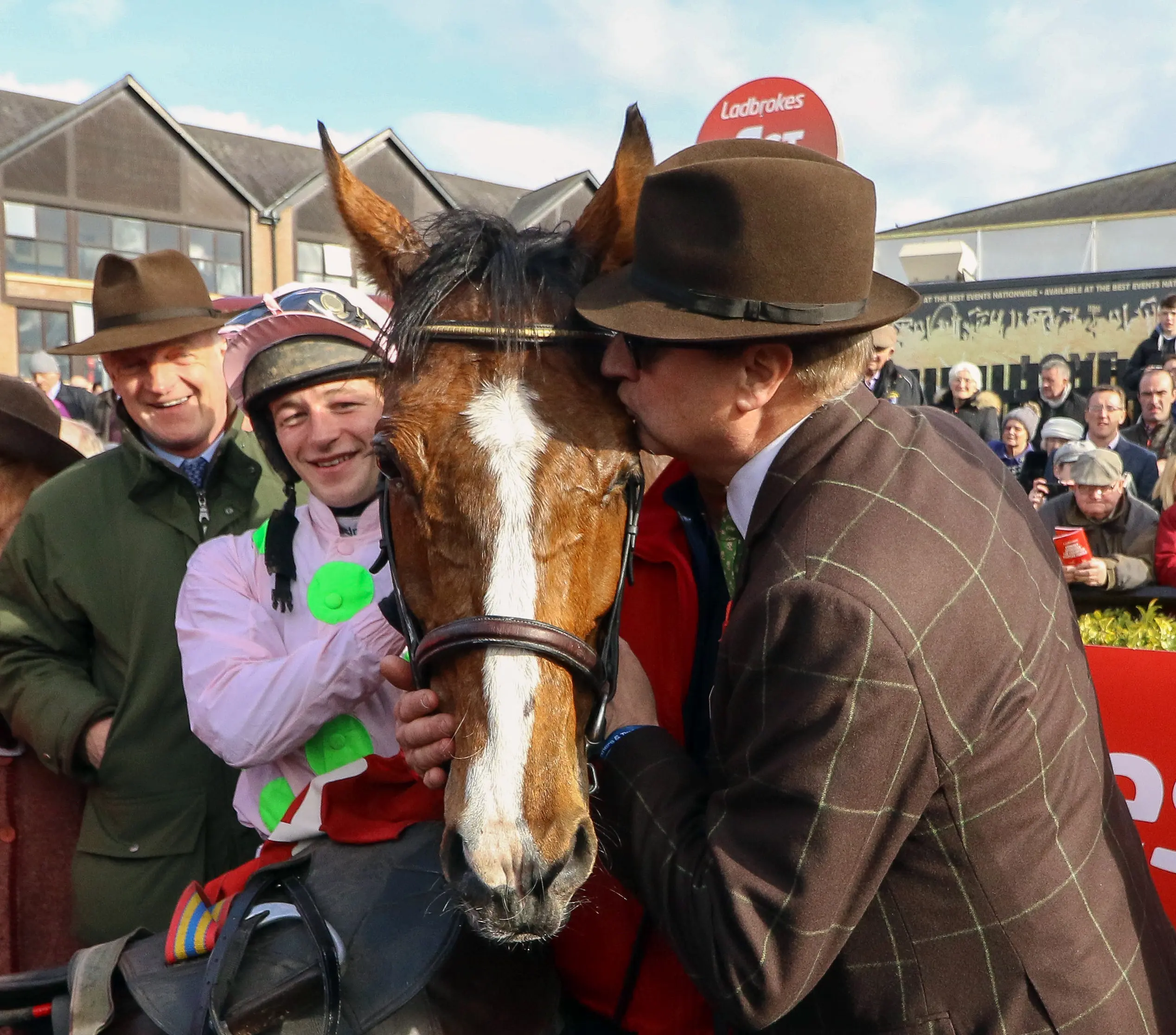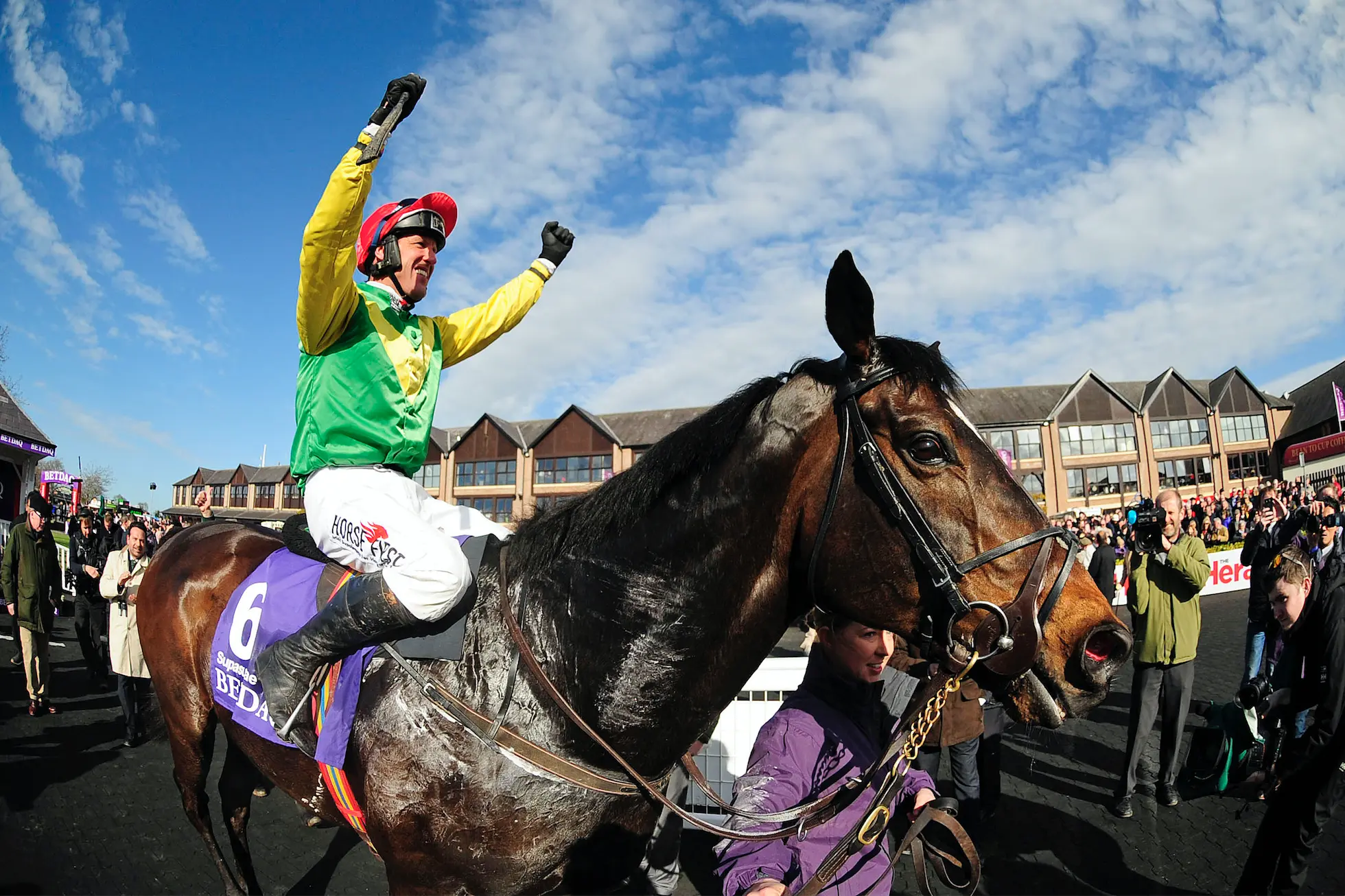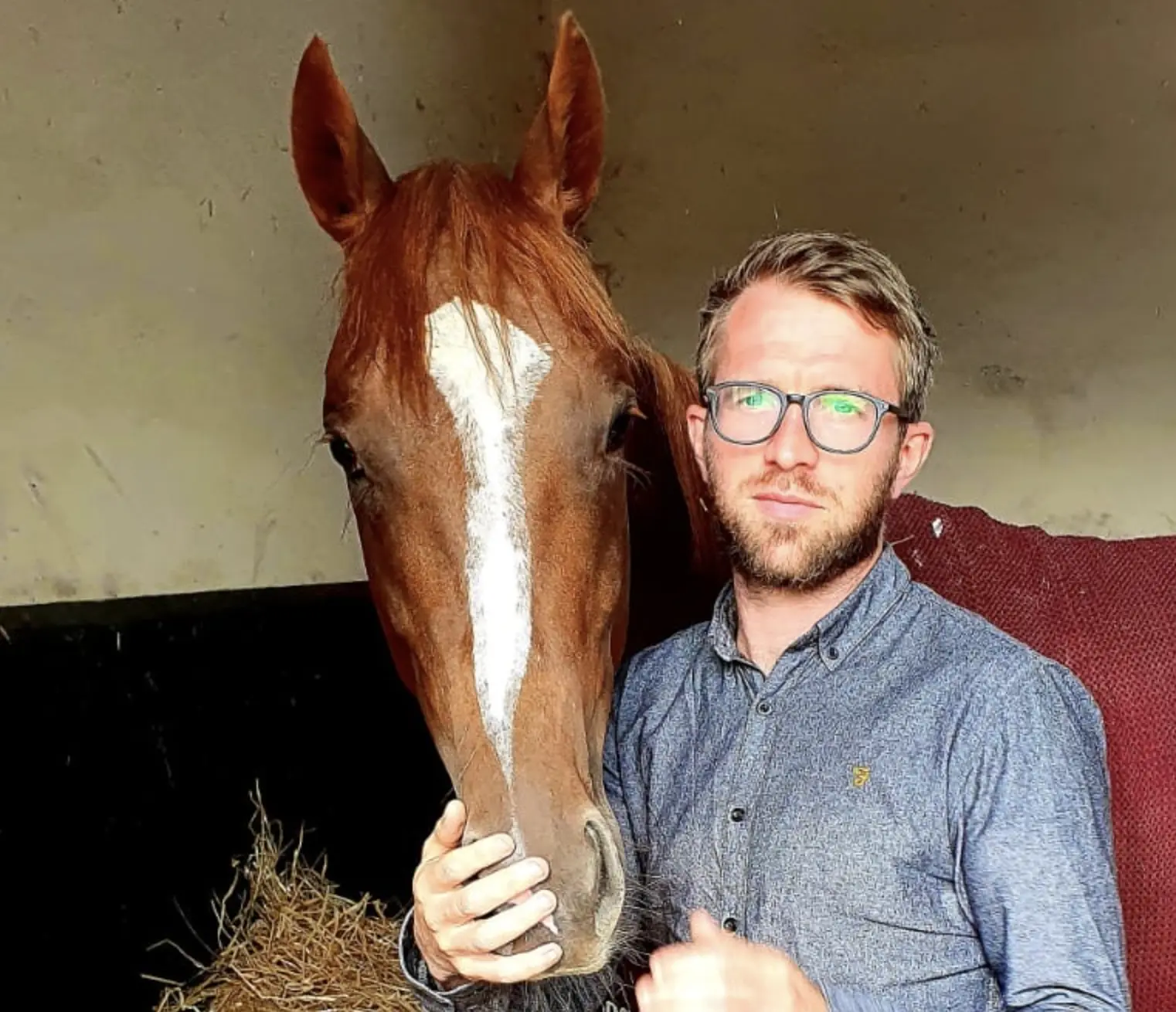Giant strides of Willie Mullins and Gordon Elliott leave rivals struggling to keep up
By Johnny Ward
Last Updated: Tue 5 Dec 2023
By Johnny Ward in Dublin
Almost two decades after Danoli ran his last race, Tom Foley still comes alive at the very mention of his name. “His determination was unbelievable, although to this day I still can't quite put my finger on why he was so popular,” he says.
Danoli’s popularity seems straightforward to explain and may have less than one would think to do with his toughness on the track. It was down to his being trained by a humble gentleman, owned by another and ridden by a journeyman.
There is something mystical about those grainy sporting broadcasts of yesteryear and a YouTube clip of Danoli winning the 1997 Hennessy evokes a past that is long gone.
It’s the noise, see. Leopardstown must have been heaving that afternoon as Danoli, who commentator Tony O’Hehir would hail as “The People’s Champion”, beat Jodami and Imperial Call. Even reading those names now transmits an involuntary tingle.
Foley is one of the nicest people I’ve had the fortune of meeting in any walk of life.
He could be your neighbour and more luck to you if he is. Danoli was no Faugheen. He was no Hurricane Fly. He was no Don Cossack. And the public loved him more than any of that trio.

Mullins, left, is full of smiles after the victory of Faugheen of Punchestown - one of 18 winners for him at the meeting
Jumps racing in Ireland owes much of its popularity to the fact that it gives the small guy a chance – or at least did.
A statistic that popped up before the fourth day of the Punchestown Festival ended was nothing short of staggering.
With the final day of the Festival still to come, Willie Mullins had accumulated more prize money in less than four days than every trainer bar Gordon Elliott had earned in the entire season, which had only a day and a bit left.
While this was going on, Mullins’ brother, Tony, was elsewhere at Punchestown lobbying the CEO of Horse Racing Ireland.
He had no runner at all at Punchestown; his stable star Glencairn View having lost his life in the Scottish Grand National the previous Saturday.
“People will be saying ‘Tony is jealous’,” he tells me, though he has admitted recently that looking after some of his brother’s horses (out of training) when Willie sees fit is keeping his training operation going.
“I’m jealous of nothing: love to see them have the very good horses the two big trainers have. But bombarding handicaps – Willie had 16 declared in one on Saturday, Gordon with 13 in Irish National – that has to be stopped. That is my huge complaint.
Horses trained by Elliott and Mullins dominated the Irish Grand National (PA)
“I went to Brian Kavanagh about it. I am not sure how it can change but if allowed continue, the consequences are not good. You don't have to be architect to realise that an industry sitting on two pillars is a very unstable foundation.
"In the same way, the government of this country championed the builders during the Celtic Tiger – and we know how we that ended.”
Willie Mullins chalked up 18 winners at the Punchestown Festival and if he had no runners in the other 360 days of the season would have finished joint-tenth in terms of winners for the campaign.
At one stage at the Cheltenham Festival he and Elliott had six winners each, while the British trainers combined had only five.
Trainer Gavin Cromwell, Elliott’s friend and farrier, believes there is a broader point to be made here about the quality of trainers in Ireland in general.
“From my perspective, there is no point whinging and moaning about it; you’re going nowhere down that road,” he said. “You have to admire the pair of them, some role models – particularly Gordon, who has shown that it’s not impossible having come from nothing.
“There are positives as well: not every owner wants to go to those two. I’ve plenty of people interested in looking for horses, smaller owners.
“Where are they going to be in the pecking order at Willie or Gordon’s?They would hardly get to speak to either of them, let alone figure out where their horse is in the pecking order.
Tiger Roll (Elliott) and Pleasant Company (Mullins) fought out the finish of the Grand National at Aintree (PA)
“I see it when I go to the UK, it just shows to me anyway that the standard in Ireland is unbelievable. To be honest I didn't see any point targeting Punchestown: with the championship going on the top yards were going to blitz it.”
Another staggering statistic: Mullins’ first dozen winners last week were owned by different people.
Jessica Harrington made a big impact later in the Festival and, asked about Mullins, she was anything but negative.
“What Willie has done this week has been absolutely fantastic, to have all those horses in such good form. It makes me want to try harder,” she says, evoking the spirit of ‘Boxer’ in Orwell’s Animal Farm.
Tony Mullins makes some reasonable arguments about the difficulty facing new or struggling trainers. “Years ago, we all trained in a field and tacked up the horse there,” he said. “Now you have a walker, all-weather gallop, start-up feed – 35 years ago you could start with bridle, a saddle and a stable. Now you have gallops, walkers, all-weather lunge rings – €150,000 to start, minimum.
“I am not despondent. I was very annoyed the last couple of years at the lack of effort; now I see and believe that HRI is addressing matters and it will be interesting to see if it works or not.”

Supasundae starred for Harrington at Punchestown - though only after Elliott and Mullins runners fell (Racingfotos)
Ireland’s Cheltenham fortunes are at an all-time high but a grim picture has been painted of the difficulties facing the majority of Irish trainers.
After the Festival in March, the Irish Racehorse Trainers Association claimed that big trainers are getting bigger but middle-ranking colleagues are being squeezed out of business. It all sounds very much like the free market.
The claim came on the back of the Turf Club’s successor, the Irish Horseracing Regulatory Board, issuing a statistical report for 2017 which saw a 10.5 per cent decrease in numbers holding full National Hunt training licenses and a 13 per cent slide in those holding restricted licenses.
Last year, HRI introduced a Trainer Marketing Support Scheme to assist trainers in recruiting new owners. It also realised a series, in which every race offers an inflated pot of €15,000, comprising 14 hurdles and six chases that have rating caps of 109 or 116.
Kavanagh knows that a duopoly is far from ideal. “I have to admire the lads' achievements, they’ve been on a different level. They might be two trainers but there were many different owners.
“We deliberately put on a quality programme to attract better horses to be kept in training and we’ve made measures to try to have a share success.
“Penalising Willie or Gordon is not the right way to go about it: they are raising the bar. when I was young Steve Davis dominated snooker and people said nobody could beat him but then Stephen Hendry came along.
“HRI is encouraging quality and those who strive to raise the bar. We are not blind to the challenges and you want the success shared as broadly as possible.”
Ultimately, the best trainers are being rewarded and, as an owner, one can always go elsewhere and pay less. It is hard for other trainers but Punchestown will not involve a titanic conclusion to the title race indefinitely.
Fot Tony Mullins, the future is uncertain. “People say racing will go on, that it will evolve. The human race evolved after the Black Death but 25 to 30 million died in between,” he said.
“I’m probably a descendant of one of the unfortunate ones.”
Most viewed
Richard Johnson’s first point-to-point runner to be ridden by his daughter
Champion Hurdle becoming game of Grandmother’s Footsteps
William Hill Becher Chase: three key runners and tip
Thursday tips: Dave Nevison shares his three best bets
Mydaddypaddy 5-1 for Supreme after easy win plus The New Lion latest
Copyright 2025 Racing TV - All Rights Reserved.
Please bet responsibly
Copyright 2025. All rights reserved

